[ad_1]
Experts say the main challenges facing the EV industry are inadequate charging infrastructure and reliance on imported components and batteries. Range anxiety — the fear that a vehicle will not have sufficient fuel to reach its destination — and the high price of EVs are also areas of concern, they add.
But 2020 could change all that. Over the last quarter, manufacturers have announced several new EV models that promise a higher range — some substantially more than the 80-90 km an EV gives now. Even at this year’s Auto Expo — which started on February 7 and will go on till February 12 at Greater Noida — electric vehicles are clearly the show-stoppers.
Among the EVs that have caught everybody’s attention at the expo are Maruti Suzuki’s Futuro-e and Tata Motors’ Nexon EV and Altroz EV. China’s Great Wall Motors stole the show with the Ora R1.
Agencies
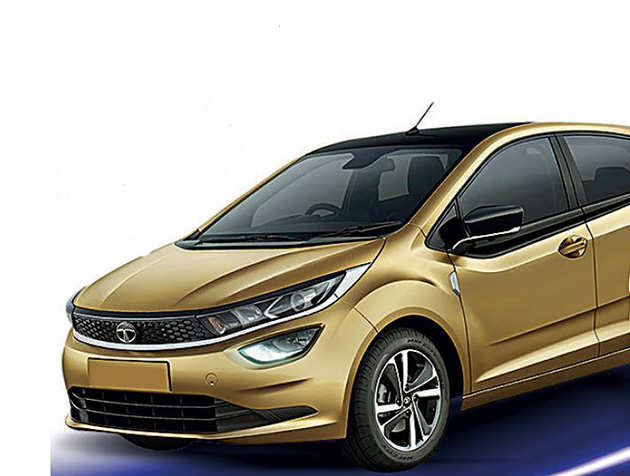
Tata Motors Altroz EV* Expected price: Rs 14 lakh Battery capacity: 30kWh Range: 300 km
The “world’s most affordable electric car” is expected to cost Rs 6.2-8 lakh. MG Motor’s electric SUV Marvel X, Kia Soul, Renault K-ZE and the compact Mahindra Atom are the other wheels that have made their debut at the Auto Expo. These vehicles are expected to hit the road in a year or two. For the luxury commuter, Mercedes Benz unveiled the EQC, which is expected to be launched in April.
There is no shortage of electricity-generation capacity in India to fuel these cars, says Rishabh Jain, manager, Centre for Energy Finance, a public policy think tank. “Our analysis suggests that four-wheeler passenger and commercial vehicles consumed 21.3 million tonnes of petrol and diesel in 2017-18. If the distance travelled by these vehicles are covered by equivalent EV-km, we estimate that nearly 50 billion units of electricity would have been required to charge the EVs.
This translates to 3.2% of the electricity that was generated in the same financial year,” he says. India’s installed solar power generation capacity is 31 GW, according to the Central Electricity Authority.
However, some targeted policy interventions would be required in other areas. “Power distribution companies, for example, would have to upgrade their transmission infrastructure to meet EVs’ demand,” adds Jain. This would enable fast charging, shortening drivers’ waiting time at recharging centres.
The charging infrastructure space needs urgent focus as India has only 2,636 charging stations. Experts point to the business prospect in this segment. “There are several opportunities for power and battery players. Even EV charg-ing stations provide small-scale entrepreneurial opportunities,” says Arun Malhotra, former head of Nissan India who is now an independent auto consultant.
BCCL

“By developing these segments, India can reduce its reliance on imported oil and gas. Also, surplus solar power stored in EV batteries can be sold back to the grid, adding to capacity.”
For its part, the government has pushed for a wider EV adoption by offering subsidies to commercial vehicles. But electric cars still remain costlier by at least 30%, mainly due to imported batteries. The Centre’s Faster Adoption and Manufacturing of Hybrid and Electric Vehicles (FAME) scheme of 2015 rolled out subsidies for electric commercial vehicles.
Agencies
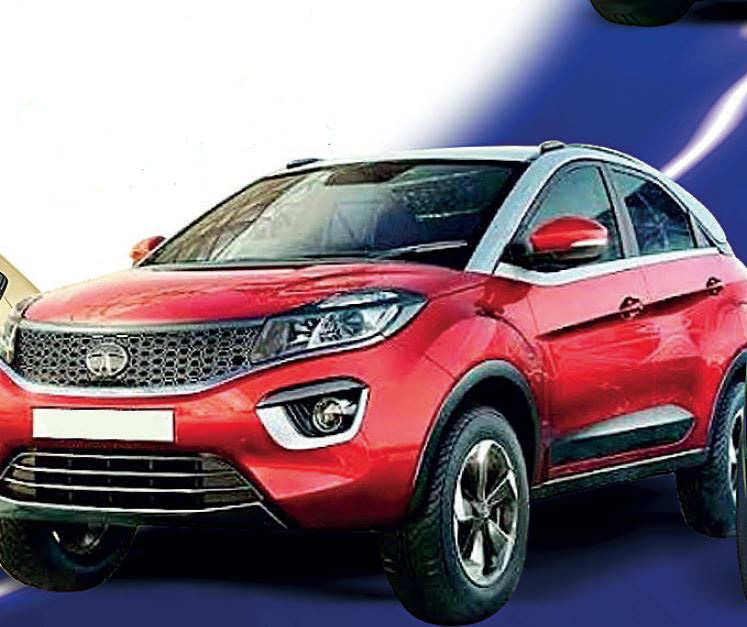
But the auto market is skewed towards the personal segment, with the fleet segment accounting for less than 10% of sales. So, experts say, FAME benefits must be extended to the personal segment as well.
Given these considerations and challenges, why are automakers still bullish on electric vehicles and how are they planning to recharge their electric offerings?
For Mahindra & Mahindra, the answer lies in personal vehicles. “The personal segment will be a niche area for us,” says Mahesh Babu, CEO, Mahindra Electric. “It will help us improve our brand. As volumes scale up and prices come down, we will see more traction in this segment.”
ELECTRIC ADVANTAGES
Electric cars have higher torque and substantially faster pick-up than internal combustion (IC) engines.
Electric drivetrains have fewer moving parts than IC engines and are much quieter.
EVs are substantially lighter and have lower maintenance costs — battery is the biggest recurring cost.
EVs have almost zero emission.
M&M was among the first to start an electric play in 2010 when it purchased a majority stake in electric carmaker Reva. Today, it seems to have lost the aura of being an EV pioneer.
BCCL
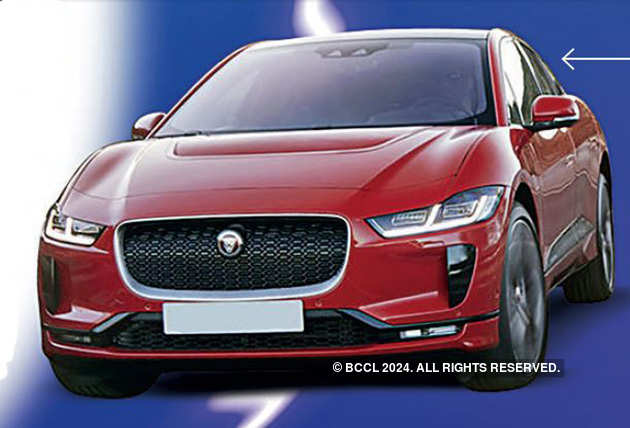
Jaguar I Pace Expected price: Rs 1 cr Battery capacity: 90 kwh Range: 470 km
The company is struggling with its product portfolio, sales are down and there seems to be a general mood of despondency. Its e2o Plus has been retired and the e-Verito is not finding takers.
But its next offering, the eKUV100, could turn the situation around. This EV, which has a 15.9 kwh lithium-ion battery, promises a range of approximately 140 km on a full charge. The ex-showroom price is pegged at Rs 8.25 lakh.
BCCL

Nissan Leaf Expected price: Rs 35 lakh Battery capacity: 40 kwh Range: 230-250 km
Mahindra will also focus on the shared mobility space and on enhancing its presence in the office-commute space. M&M has tied up with a number of companies to provide e-Veritos for employee transportation. It is also looking at significant investment on EV capabilities at its Chakan plant.
Contract Whammy
Tata Motors rode ahead of M&M in 2017 when it won the bigger share of a contract to provide 10,000 electric sedans to staterun Energy Efficiency Services Ltd. But Tata, which was to deliver nearly 5,500 electric vehicles over two years, took a big knock in 2019 when EESL decided to drastically reduce the number of vehicles it would procure.
Agencies
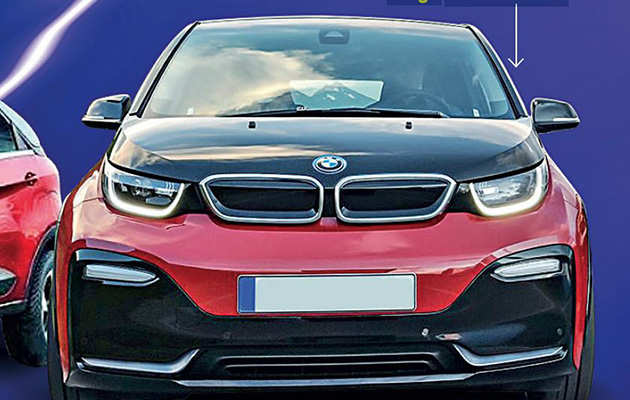
BMW i3 Expected price: Rs 1 cr Battery capacity: 42 kwh Range: 150-200 km
Now, Tata is betting on the Nexon EV, which promises a range of nearly 350 km on a full charge. The price, at `14 lakh, could be a deterrent. If FAME 2 benefits extend to the personal segment too, then the price of the Nexon EV could come down to Rs 12 lakh.
“The objective is to launch EVs in the personal space that can be differentiated and aspirational,” says Shailesh Chandra, president-electric mobility business & corporate strategy, Tata Motors.
BCCL
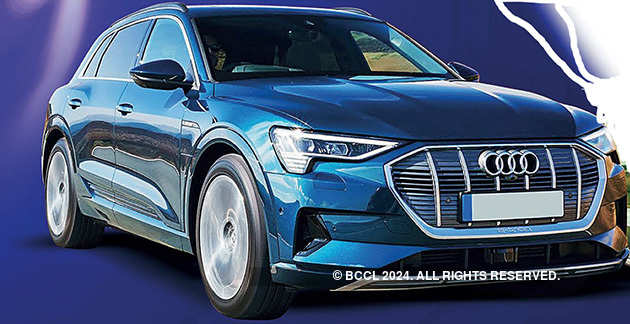
Audi e Tron Expected price: Rs 90 lakh Battery capacity: 95 kwh Range: 400 km
Higher sales in the personal segment can drive the market share of EVs to 10-15% by 2025, from less than 1% now, he says. Around 3,600 electric cars were sold in FY19 as against 31.6 lakh fossil fuel-powered cars, according to the Society of Manufacturers of Electric Vehicles.
Tata Motors and group company Tata Power have also announced a partnership to set up 300 charging stations by the end of 2019-20. Recharge tariff would be lower for Tata cars.
Agencies
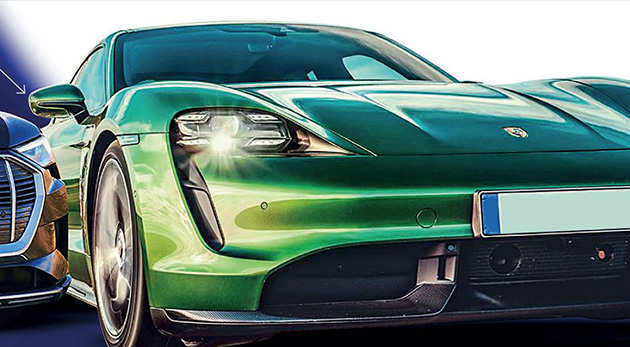
Porsche Taycan Expected price: Rs 1.08 cr Battery capacity: 79.2 kwh Range: 333-407 km
Eyeing the Mass Market
The most exciting EV play in 2020 is likely to come from Hyundai India. The company launched its Kona last year to cater to the high-end market and followed it up with an announcement of a $200 million investment for a new electric vehicle platform for the mass market.
The Kona, which has a range of 450 km and is priced at Rs 25 lakh, has got over 300 bookings till date. Hyundai now plans to launch affordable EV products with more localisation. “We sell 45-50 Konas a month. We don’t expect it to give high sales volume,” says Vikas Jain, head-sales, Hyundai Motor India. “The personal segment buyer buys an EV because he wants to try something new, and the range has to be high.”
Agencies
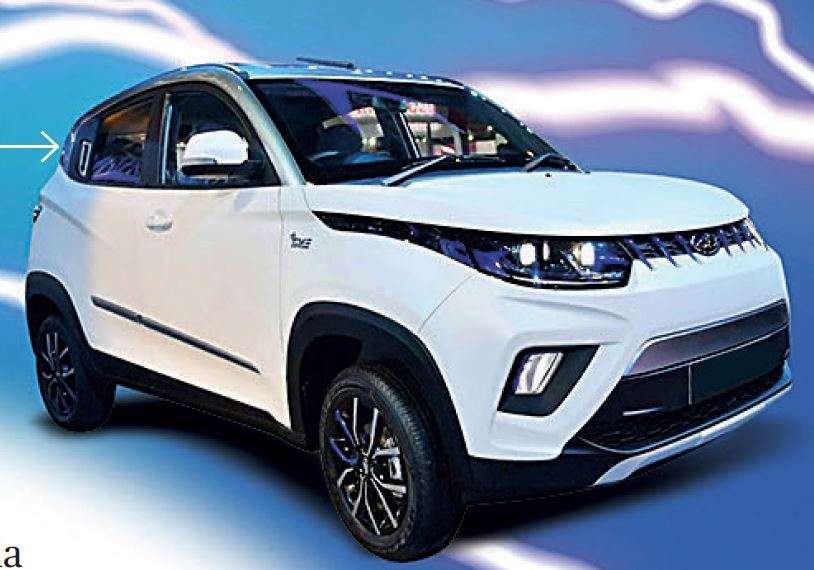
Mahindra eKUV 100* Expected price: Rs 8.5 lakh Battery capacity: 15.9 kwh lithium ion Range: 140 km
Hyundai, together with its affiliate Kia Motors, had in 2019 announced an investment of $300 million with ride-sharing company Ola to build electric vehicles and infrastructure, apart from developing fleet and mobility solutions. The agreement also aims to develop vehicles that would cater specifically to the ride-hailing market. Hyundai also plans to bring its SUV, Nexo FCV, in 2020.
The South Korean multinational automotive manufacturer seems to have developed a clear framework for itself in the Indian EV space. They might well become the trendsetters in the segment.
BCCL
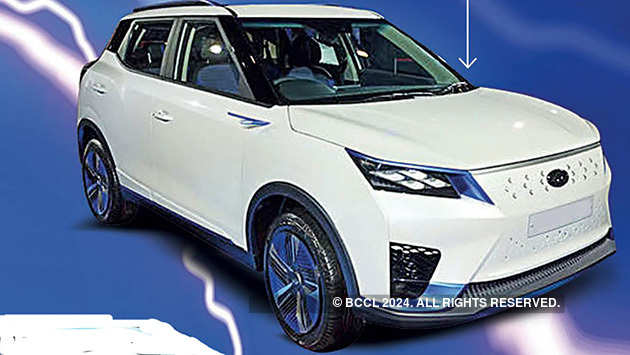
Mahindra XUV300 EV* Expected price: Rs 10-13 lakh Battery capacity: 40 kwh Range: 200-300 km
New Kid on the Block
The MG ZS is an electric SUV from MG Motor India that boasts a three-phase permanent synchronous electric magnet motor, a liquid-cooled lithium-ion battery and a range of 340 km on a full charge. The connected car is likely to cost Rs 20-23 lakh. MG Motor wants to take full advantage of the government’s EV push. So it is looking at conducting a feasibility study to set up a battery assembly plant in Gujarat. What is perhaps more exciting is that MG is planning to produce a sub-Rs 10 lakh electric vehicle in three years. This could be a game changer in a priceconscious market like India.
BCCL
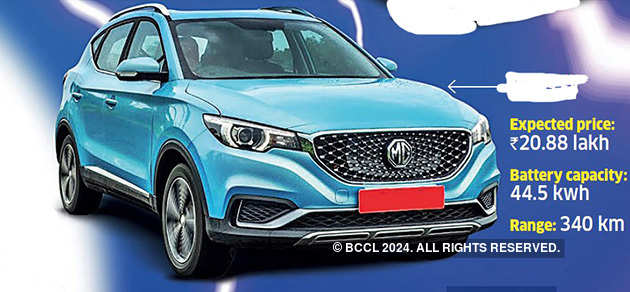
MG ZS EV* Expected price: Rs 20.88 lakh Battery capacity: 44.5 kwh Range: 340 k
MG, the Indian subsidiary of Chinese SAIC Motor Corporation Limited, has invested Rs 2,200 crore to acquire General Motors’ plant in Halol and wants to scale up the investment to Rs 5,000 crore by 2022. It also wants to develop a Csegment sports utility vehicle for India. “We feel this is the right time to start making a change,” says MG Motor India President Rajeev Chaba. “EV reinforces our positioning as a leading tech car company.”
With these companies ready to electrify the automotive market in India, 2020 will in all likelihood be a turning point for the automobile market. Over to the electricvehicle makers.
[ad_2]
Source link
